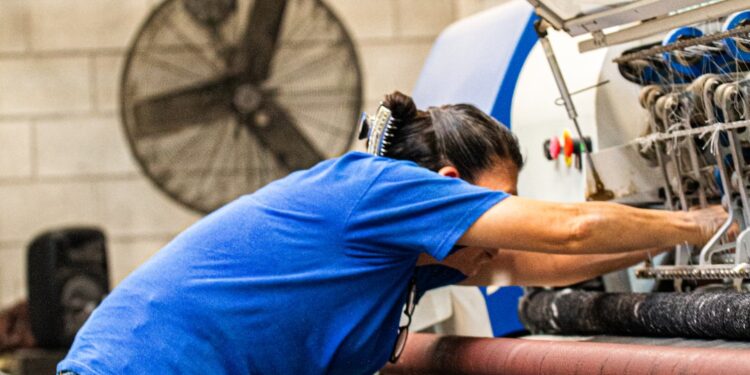The role of artificial intelligence in streamlining manufacturing operations
In recent years, artificial intelligence (AI) has become a prominent and transformative technology across various industries. One of the sectors that has greatly benefited from AI is manufacturing. By employing AI in their operations, manufacturers are able to streamline processes, reduce costs, enhance efficiency, and ultimately improve overall productivity. In this blog post, we will explore the significant role of artificial intelligence in streamlining manufacturing operations.
One of the key areas where AI has had a significant impact is in predictive maintenance. Traditionally, manufacturers had no choice but to rely on manual processes for testing equipment and predicting when maintenance would be required. This reactive approach often led to unexpected breakdowns and costly downtime. However, with the introduction of AI, manufacturers can now use advanced algorithms and machine learning techniques to predict precisely when maintenance will be needed. By analyzing real-time data from sensors placed on machines, AI can identify patterns and anomalies that may indicate potential issues. This allows manufacturers to perform maintenance tasks proactively, preventing unplanned downtime and reducing the likelihood of costly repairs.
Furthermore, AI has revolutionized the quality control process in manufacturing. Through the use of computer vision and machine learning algorithms, manufacturers can now automate quality inspections. This eliminates the need for manual inspections, which are not only time-consuming but also prone to errors. AI-powered cameras and sensors can quickly analyze products, detecting any defects or anomalies, such as color variations or dimensional inaccuracies. By automating this critical process, manufacturers can significantly enhance product quality, reduce waste, and ultimately improve customer satisfaction.
Inventory management is another area where AI has proven to be highly beneficial. In traditional manufacturing, inventory management is often a complex task, requiring significant human effort and expertise. However, with the introduction of AI, manufacturers can now utilize advanced algorithms to analyze historical data, current demand, and market trends to optimize their inventory levels. By accurately predicting demand and maintaining optimal stock levels, manufacturers can minimize inventory holding costs while ensuring they have enough stock to meet customer demands. This enables manufacturers to achieve a higher level of operational efficiency, reduce waste, and enhance profitability.
AI has also made significant advancements in optimizing production processes. Manufacturers can use machine learning algorithms to analyze vast amounts of data collected during the production process, such as machine settings, environmental conditions, operator inputs, and sensor data. By identifying patterns and correlations in this data, AI can help manufacturers optimize their processes for improved efficiency, reduced cycle times, and increased output. Additionally, AI can facilitate the implementation of adaptive manufacturing, where production systems can self-optimize and adjust in real-time based on changing conditions. This flexibility allows manufacturers to respond quickly to market demands, reduce lead times, and stay competitive in a rapidly changing business landscape.
Another worthy mention is the role of robotics and AI-powered robots in transforming manufacturing operations. Collaborative robots, also known as cobots, are designed to work alongside humans, assisting them in various tasks. These intelligent machines can take over repetitive, physically demanding, and dangerous tasks, allowing human workers to focus on more complex and value-added activities. By employing cobots, manufacturers can enhance productivity, reduce human error, increase workplace safety, and create a more harmonious human-robot work environment.
In conclusion, the role of artificial intelligence in streamlining manufacturing operations cannot be overstated. AI has fundamentally transformed various aspects of manufacturing processes, from predictive maintenance and quality control to inventory management and production optimization. Through the use of advanced algorithms, machine learning, and robotics, manufacturers can achieve higher levels of efficiency, reduce costs, enhance productivity, and ultimately deliver better products to their customers. With continuous advancements in AI technology, the future holds even more exciting possibilities for the manufacturing industry, paving the way for increased automation, smarter factories, and a more sustainable and competitive manufacturing ecosystem.














